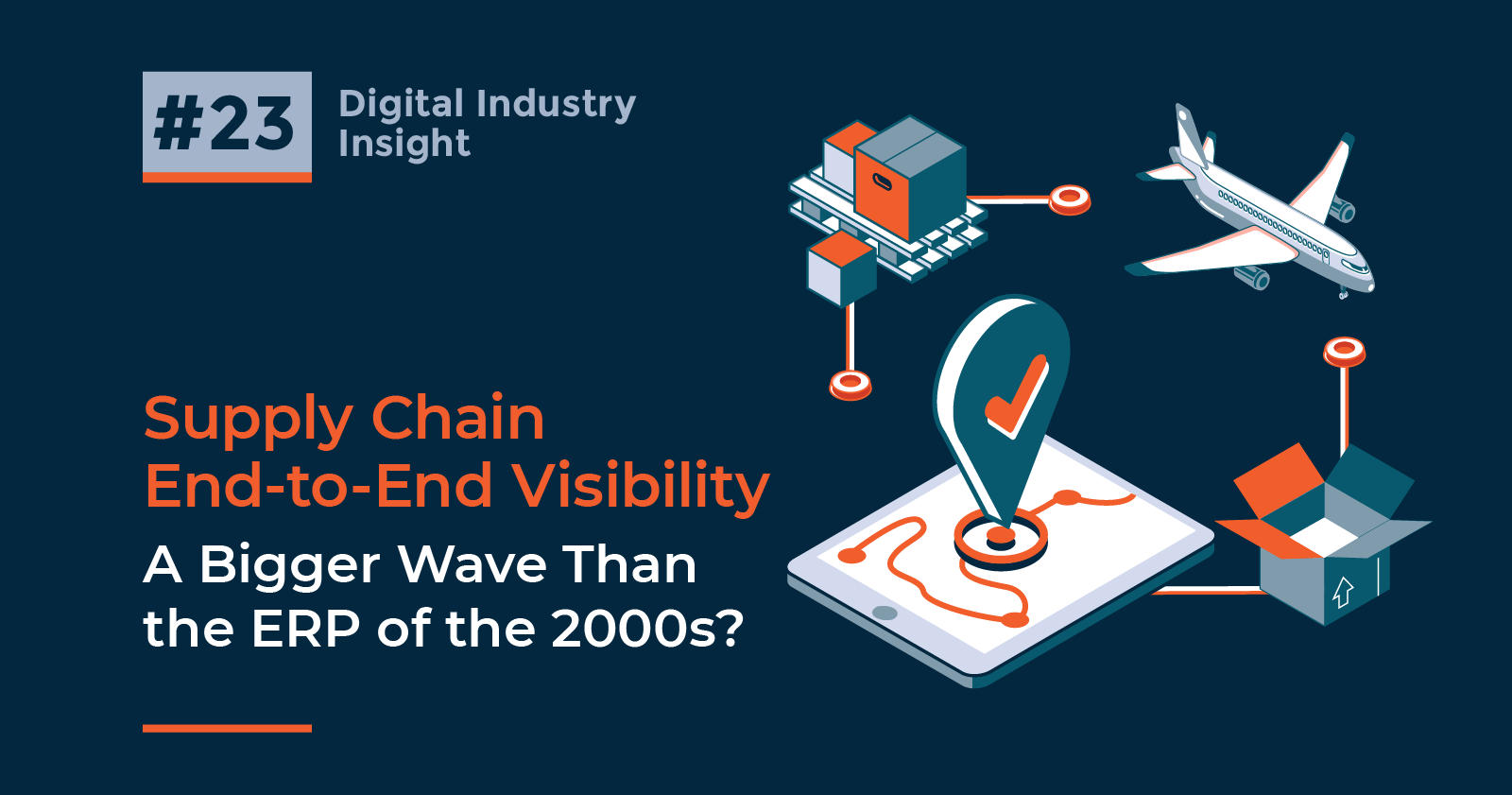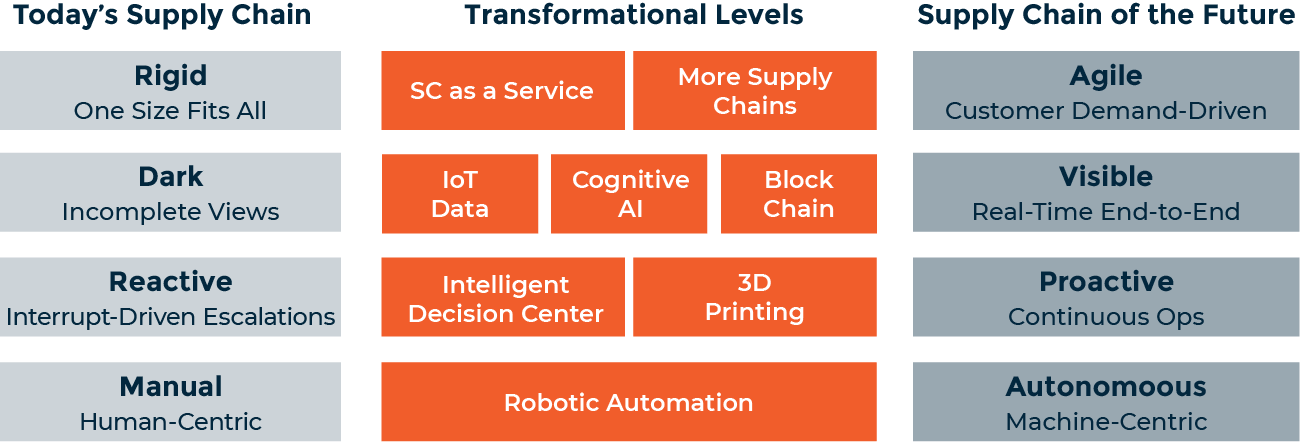Jun 30, 2020
| 2 min read
Digital Industry Insight #23

While many of us are excited by Industrial IoT, Edge Computing and Robotics among many transformations in the Digital Industry, an area that is often overlooked is supply chain. There are several market forces catalyzing an accelerated change including:
Today, most supply chains rely on a series of siloed processes and tools that were designed to work well when first released but today are linked together through custom code and inefficient processes. These fixes are “band-aids” on top of a system not inherently designed for real-time telematics and IoT data. Today’s world is no longer asking but demanding a transformation from a rigid structure optimized for volume and cost to an agile supply chain responding to constant disruptions and consumers’ simultaneous demand for both variety, instant delivery, and low delivery cost.

Such transformational outcome won’t be possible without many supply chain business innovations such as the increased use of 3rd parties as service providers for various supply chain functions and the notion of micro supply chains, where multiple supply chain operational models co-exist, with each optimized for the service level requirements for a particular group of products and end markets.
The fast-changing end-user market and the resulting shifting supply chain business requirement has created a condition for a new class of supply chain software. Coupled with the growing maturity of disruptive technologies, we are seeing a seismic shift in the supply chain software market similar to what happened in 2000 with ERP (Enterprise Resource Planning). The technology catalysts of this transformation include ubiquitous connectivity, SaaS cloud platforms, AI/ML, modular design, big data pools and API communications. Leading the charge is a new generation of supply chain startups who are rewriting the rules around a continuous, data-driven supply chain.
Within the sub-market of supply chain execution, examples of companies leading the charge are FourKites, Project44 and ClearMetal who are delivering on a dramatically increased service level and reduced supply chain costs.
At Momenta Partners, we help both Private Equity and Corporates pinpoint, accelerate their strategy and invest in the Digital Supply Chain. To understand more about Momenta’s point-of-view on supply chain and explore our insights around supply chain execution, planning, sourcing, warehouse management and transportation management, setup a time by emailing us at pema@momenta.one or filling out the form below.
